Wounds yet to heal
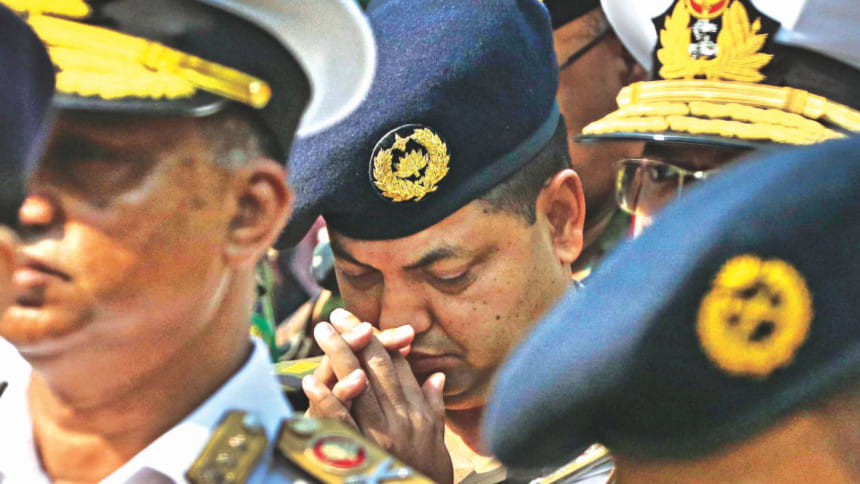
Tasim lost both his parents in just nine months.
After his mother died of a brain tumour, his father Maj Mizanur Rahman was killed in the Pilkhana carnage.
He was only 10 then.
He and many other families came to Banani graveyard yesterday to pay homage to the officers killed nine years ago. They placed wreaths on the graves of their loved ones.
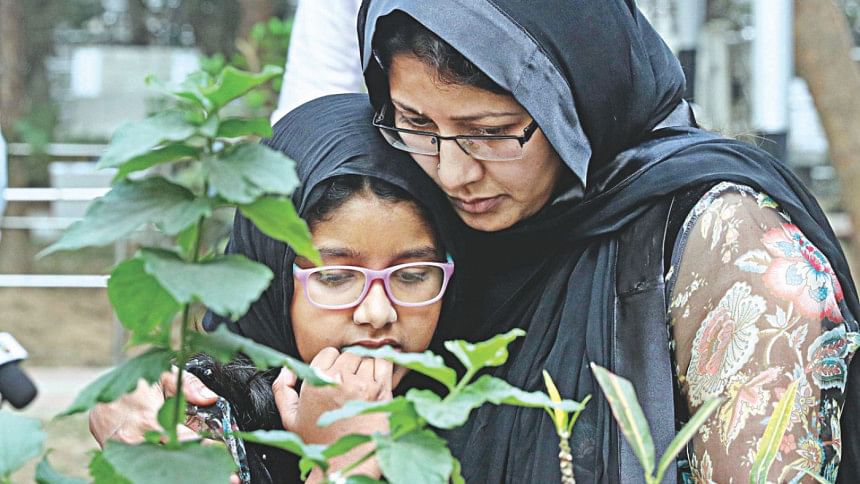
Tasim came with his 70-year-old grandmother who cannot move without a wheelchair.
A total of 74 people, including 57 army officers, were killed when the mutineers revolted on February 25, 2009, during Darbar (yearly assembly) of the force in the capital's Pilkhana.
The mutiny had left the nation numb, as people stood aghast at the extent of the barbarity perpetrated at the Pilkhana headquarters of the paramilitary force, later renamed Border Guard Bangladesh (BGB).
Tasim, now an HSC student at a cadet college, remembered that it was a typical morning.
“We heard the first gunshots at the assembly hall, which was not far, two hours after my father left home. I was home with my three-year-old brother and my grand-mother. I called him, but the phone was switched off,” he told this correspondent at Banani graveyard.
Grieving families offered their prayers and laid flowers on the graves of their loved ones yesterday. Some demanded February 25 be declared martyred soldier day.
Many of them said they were waiting for the execution of the verdict in a case filed over the killings of their near and dear ones.
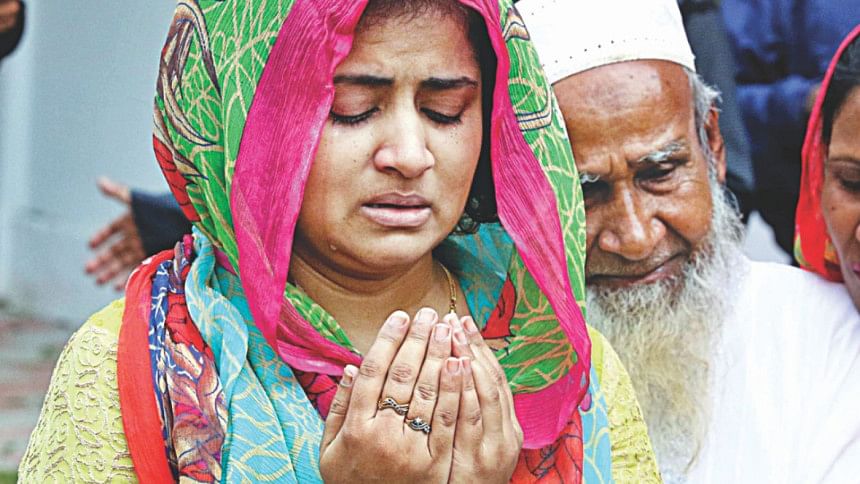
“Fifty seven army officers were martyred. I hope the day is valued with due respect,” Lucky Sarwar, sister of slain Maj Kazi Mosaddek Hossain, said. Lucky went to the graveyard with Mosaddek's daughter Laika to pay their homage.
The chiefs of three defence forces and the chief of Border Guard Bangladesh (BGB) first laid flowers on the graves.
The High Court announced the verdict in the case in November last year, but it is yet to release the full judgment.
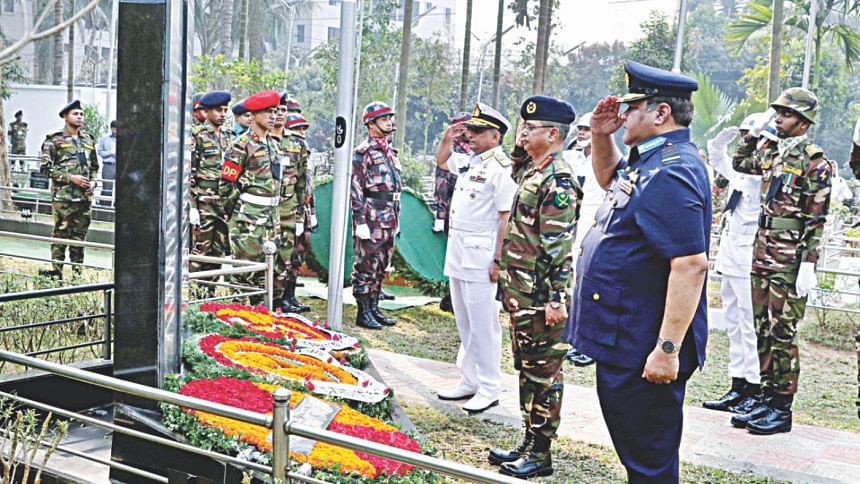
Deputy Attorney General KM Zahid Sarwar Kazal on Saturday said as the HC did not release the full verdict, neither the government nor the accused could file appeals with the Appellate Division of the Supreme Court.
On November 27 last year, the HC confirmed death penalty for 139 out of the 152 accused who were handed capital punishment by a lower court for their involvement in the killings during the mutiny.
Terming the offenders “most brutal” and “cold-blooded” murderers, a three-member special bench of the HC pronounced the verdict in the biggest-ever criminal case in the country's history in terms of numbers of accused and convicts.

 For all latest news, follow The Daily Star's Google News channel.
For all latest news, follow The Daily Star's Google News channel. 

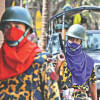
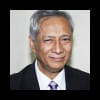



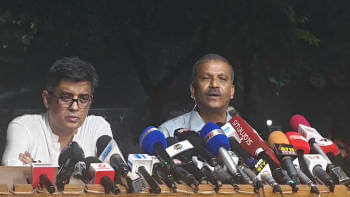
Comments